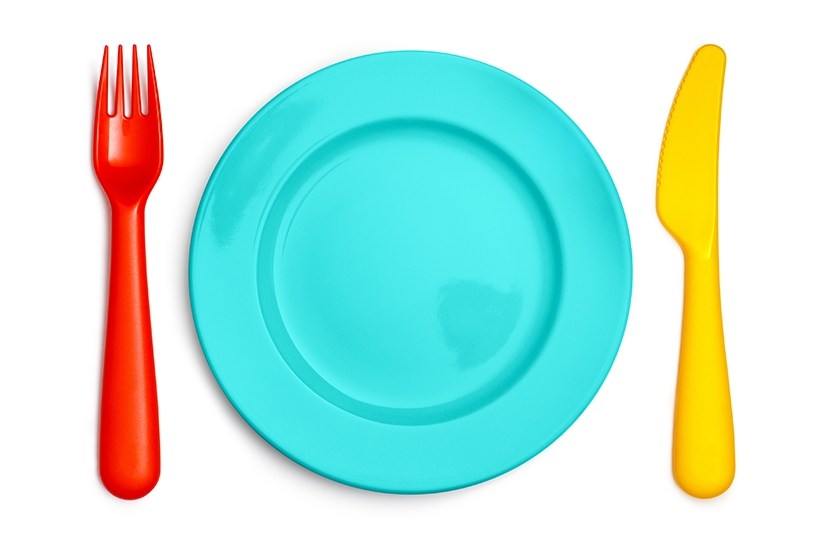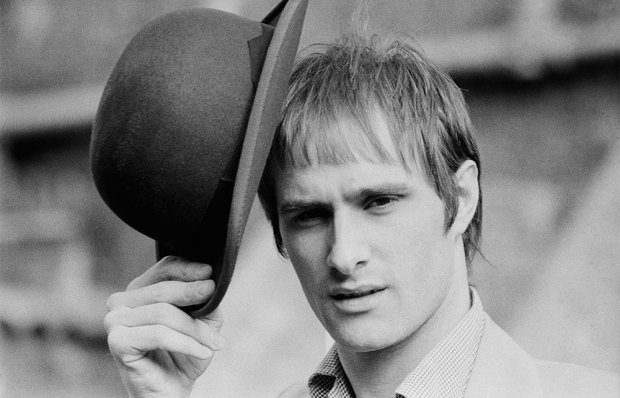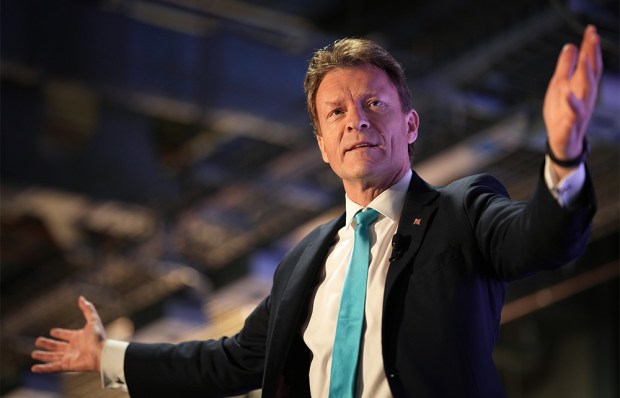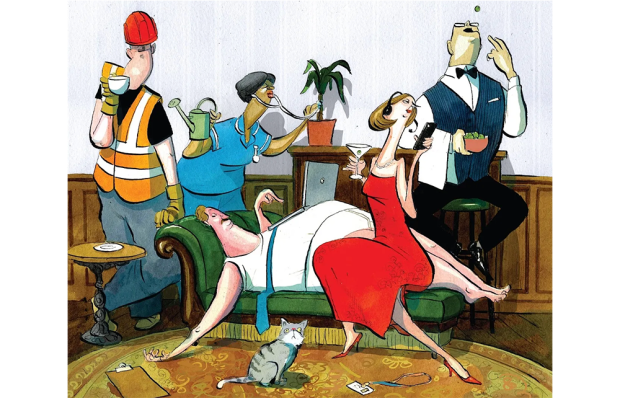‘We’re idiots, babe, it’s a wonder we can even feed ourselves.’ I listened to The Food Programme on Radio 4 this week, because the channel finder on my car radio wasn’t working and so I was stuck with it. It was, as it almost always is, four left-wing ratbags moaning to one another. As I’ve mentioned before, this is the template for almost the entirety of the station’s output: miserable women carping endlessly about everything. It is almost impossible to know what particular programme you’re listening to. You have to keep your ears tuned for key phrases which might give you an indication. If it’s a woman teacher moaning about having to do a spot of teaching, it’s probably World At One. If the words ‘proudly reclaim my own vagina’ suddenly jump out at you, it’s probably Woman’s Hour. And if it’s a woman moaning about Big Macs, it’s probably The Food Programme, easily the smuggest little show on the network.
This week — once again — they were talking about school meals and the need for the government to buy food every day for the entire working class because they cannot be trusted to spend their money wisely and the children starve while they’re mainlining skag or down the bookies. The footballer Marcus Rashford has been banging on about this, of course, often referencing his own privations as a child. It is indelicate to ask Marcus why his childhood was so financially straitened, by asking one or two questions regarding the whereabouts of his dad. For Marcus, and The Food Programme, it is the government — not families — who should provide food for needy children.
The presenter, Sheila Dillon, started the programme with a clip saying that we in the UK have the highest level of child poverty since the 1960s. Yes, Sheila, that’s because poverty is these days defined as people with a household income below 60 per cent of the average — and given that our population has increased by about 20 million since the 1960s, it thus could hardly be otherwise. And while it is true that the gap between rich and poor has broadened (of which more later), living standards for the poorest are far, far higher today than they were in that fondly remembered decade, even if we have become much more spendthrift, selfish and irresponsible. A young woman talking towards the close of the programme was worried that nobody at school got taught to cook any more and so, when adults, were reliant on fast foods and ready meals. This contributor — charming as she was — explained that while she had been schooled in the art of providing a meal for herself by two supportive parents, she understood many people were not the beneficiaries of such luxury. Of course she did not question why ‘many’ do not have two supportive parents; that would be judgmental. Instead, hive the problem off to the state.
That was the message of the programme. Kids badly fed, kids going hungry, kids not taught to cook — all the fault of the state, something the rest of us should pay for. And yet there is an interesting story here, which none of the contributors would go near, because it would involve questioning one or two of their firmly held beliefs and also divert responsibility away from that kid-starving fascist, Boris Johnson.
The Equal Pay Act of 1970 and the mass movement of women into paid employment throughout the following decade is the single most important factor in children not getting proper home-cooked meals of an evening now. This does not for a moment mean that the Equal Pay Act and the subsequent claiming of financial independence for women were wrong, simply that there are always unintended consequences. That move into the workplace also exacerbated the divide between rich and poor, given that via the conduit of assortative mating we suddenly had households with two income-earners and a residue of households where nobody worked. It is true, too, that executive pay rose very steeply, especially in the 1980s, thus also widening the divide. But the swift emergence of double-income families and no-income families is the real driver of that gap between those who are coping and those who cannot cope.
Second, the Matrimonial Causes Act of 1973 eventually saw a massive rise in divorce rates among the poorest, thus leaving hundreds of thousands of single mothers to cope with (fairly copious) aid from the state, un-able to work because they were burdened with children. The single biggest cause of poverty since 1970 has been the dissolution of both the nuclear (and for that matter, extended) family. It is a heart-breaking, self-inflicted wound, but no liberal will so much as mention it as a causal factor in poverty, still less accept — as every single longitudinal study has shown — that single parenthood means egregious outcomes for the kids, in terms of mental health, employment, drug use, criminality, earning power. Indeed we are still enjoined not to stigmatise single mothers. OK, we should not do so. But we should make it clear that single parenthood is not a desirable outcome, for the mums, for the kids, for the families. Meanwhile, schools removed food tech (or domestic science) from the syllabus, given that girls should no longer be trained to cook for their husbands and children. Somehow the notion of extending the subject to boys did not occur.
I am not trying to argue that the factors above are the sole cause of a nation that cannot cook and starves its kids. But they are all in there and some are crucial. We might also mention a greater affluence, allowing access to the incredibly expanded fast food sector (which has simply responded to demand) — in other words, utter laziness. We are more insular and the TV dominates our lives, so we have fewer family meals. All of this stuff and more besides is in the mix. But for Sheila Dillon and Marcus Rashford, it is simply a case of horrible Tories not spending enough of our money.
Got something to add? Join the discussion and comment below.
Get 10 issues for just $10
Subscribe to The Spectator Australia today for the next 10 magazine issues, plus full online access, for just $10.
You might disagree with half of it, but you’ll enjoy reading all of it. Try your first month for free, then just $2 a week for the remainder of your first year.















Comments
Don't miss out
Join the conversation with other Spectator Australia readers. Subscribe to leave a comment.
SUBSCRIBEAlready a subscriber? Log in